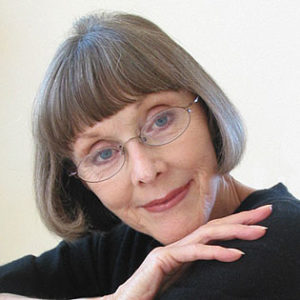By Timi Gustafson, R.D. 
Old age is no laughing matter. Inevitably, it comes with decline and decay, perhaps disability and loss. On the other hand, there are also opportunities to enjoy one’s later years when they are no longer occupied with goals and ambitions, tasks and duties, and the good opinion of others.
When asked about their greatest fears in connection with aging, most people will say losing their independence, becoming incapacitated, finding themselves socially isolated and feeling lonely, seeing their physical attractiveness and vitality diminish, facing financial difficulties, among others.
However, when quizzed about their remaining hopes and aspirations, the answers are oftentimes not as readily forthcoming. But the fact is that there are many possibilities still presenting themselves if we are open to them.
Some say that however well or poorly someone ages, the alternative would always be worse. This, of course, depends on how much you value longevity. As for me, quality of life has priority over everything else, although that can come in many ways or forms.
As the proverbial “senior moments” occur with greater frequency, and other limitations, both mental and physical, become more prevalent, there can be many creative ways to cope with those challenges. Ultimately, life should remain enriching and pleasurable as much and for as long as possible.
There is no shortage of jokes about old age and what old people can get away with, like, you can eat dinner whenever you want or make remarks younger folks would get arrested for. But seriously, there are aspects of aging that really can make a difference in how we relate to what is still in store for us.
For instance, the fact that most of life has already taken place and less is yet to come does not have to be a depressing notion. One’s experiences in the past can serve as invaluable guidelines and continue to be relevant. Priorities and values can become clearer. Less time and energy might be wasted on matters of minor significance. The growing awareness that time itself is limited and will run out in short order can lead to its better use.
“Certainly there are some downsides to aging, but I argue that there are considerably more upsides,” says Bart Astor, author of numerous self-help books, including the “AARP Roadmap for the Rest of Your Life: Smart Choices About Money, Health, Work, Lifestyle, and Pursuing Your Dreams” (John Wiley & Sons, 2013).
“Study after study,” he says, “has shown that older folks – those of us in our 60s and 70s – report higher self-esteem, greater emotional stability, and a more positive outlook on life than those who are younger.”
A reason for this may be that from a certain age on a greater sense of self and one’s place in the world comes into fuller view. As there is less uncertainty and less unfinished business to deal with, a form of acceptance can emerge that can be very comforting.
A positive outlook in particular may not only influence how well someone ages but even affect life expectancy itself. People who feel that there is still much to live for, to be explored and to be enjoyed can perceive this time as a great chance to pursue and fulfill long-held dreams and desires, and also make peace with shortcomings and disappointments.
As studies have shown, age can bring forth its own kind of happiness, a unique state of mind not easily achievable earlier on because it requires a high degree of wisdom and serenity that is hard earned but also well deserved.
———————–
Timi Gustafson, RD, LDN, FAND is a Registered Dietitian, health counselor, book author, syndicated newspaper columnist and blogger. Timi completed her Clinical Dietetic Internship at the University of California Medical Center, San Francisco. She is a Fellow of the Academy of Nutrition and Dietetics, an active member of the Washington State Dietetic Association, and a member of the Healthy Aging, and Wellness Nutrition practice groups. USA.
Reprinted with the author’s permission.




